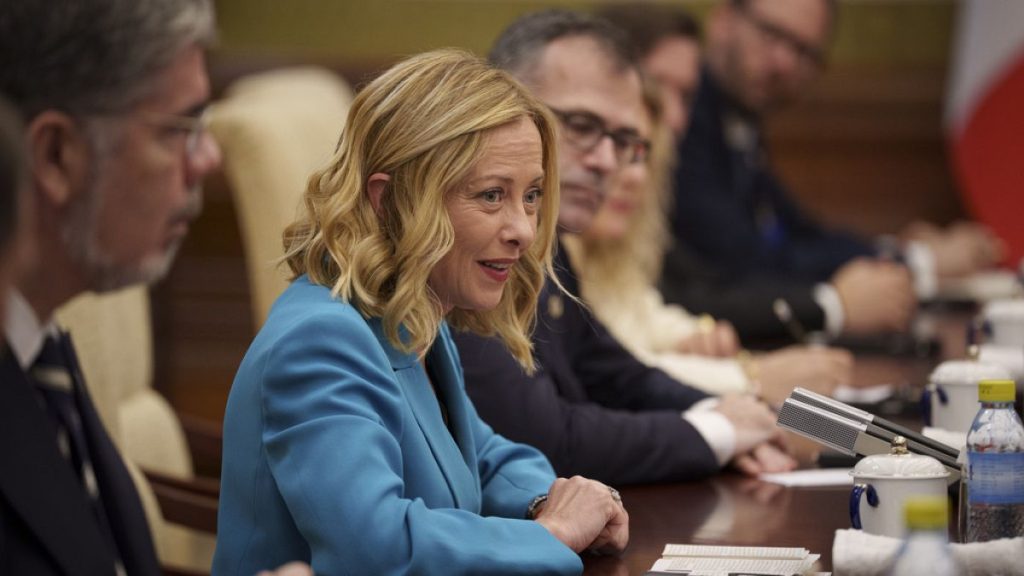Italian Prime Minister Giorgia Meloni recently visited China, signing a three-year plan aimed at fostering a strategic partnership between the two countries in various sectors. This marked a significant milestone as it was the first official trip by an Italian prime minister to China since 2019. The primary goal of the visit was to re-establish and strengthen economic cooperation between Rome and Beijing after Italy’s withdrawal from the Belt and Road Initiative. One of the key aspects of the agreement signed during the visit was to boost the growth of Italy’s automotive sector, seen as one of the country’s most strategic industries.
Roberto Vavassori, president of the Italian Association of the automotive industry ANFIA, emphasized the positive impact of Meloni’s visit to China, highlighting the political support received from both Chinese President and Italian leadership. He mentioned the importance of encouraging Chinese companies, irrespective of their economic capacities, to invest in Italy, particularly in bringing Chinese expertise to the country. The partnership also focused on electric vehicles and renewable energies, aiming to bring vehicle manufacturing to Europe, particularly Italy, to enhance capabilities in these areas. Vavassori stressed the need for Italy to increase its production in line with the green transition and the competitive landscape of the automotive sector.
As Italy and other EU member states adjust their engagement with China, especially with tariffs being imposed on Chinese goods, experts emphasize the importance of outlining a clear EU-China policy. Silvia Menegazzi, an assistant professor in Chinese Studies at Luiss University, highlighted Italy’s focus on bilateral partnerships, contrasting it with China’s Belt and Road Initiative, which has a global reach. China is Italy’s second-largest trading partner outside the EU after the US. Meloni acknowledged the disparity between Chinese investments in Italy and Italian investments in China, pledging to address this and work towards increasing Chinese investments in Italy.
The signing of the three-year plan during PM Meloni’s visit reflects the continued efforts to strengthen economic cooperation between Italy and China across various sectors. The agreement aimed to boost Italy’s automotive industry and promote electric vehicles and renewable energies, highlighting the importance of enhancing capabilities in these areas for both countries. The visit received significant political endorsement from both Chinese and Italian leaders, emphasizing the importance of political support in encouraging Chinese companies to invest in Italy and bring Chinese expertise to the country.
Italy’s approach to its relations with China focuses more on bilateral partnerships, while considering the Belt and Road Initiative, which has a broader and more global impact. The need to adjust engagement with China and define a clear EU-China policy becomes increasingly important as Italy and other EU member states navigate their relationships with China. The visit by PM Meloni to China marked a significant step in enhancing economic cooperation and fostering a strategic partnership between the two countries, working towards addressing disparities in investments and promoting growth in key sectors like the automotive industry.
Overall, PM Meloni’s visit to China and the signing of the three-year plan underscore the commitment to strengthening economic ties and cooperation between Italy and China. The focus on boosting the automotive sector, promoting electric vehicles and renewable energies, and addressing investment disparities reflects the shared goals of both countries in enhancing their capabilities and competitiveness in key industries. The visit received positive political endorsement from both sides, highlighting the importance of political support in encouraging investments and fostering collaboration between Italy and China.


